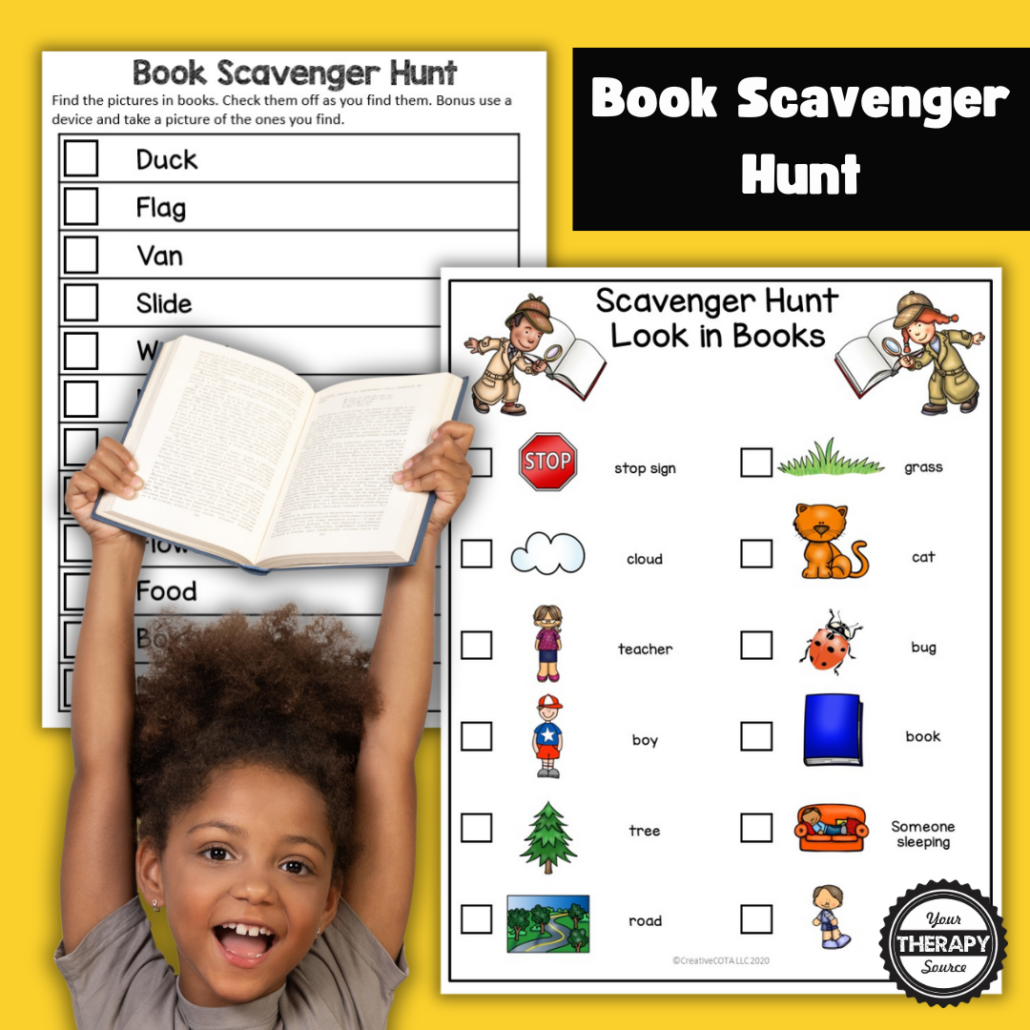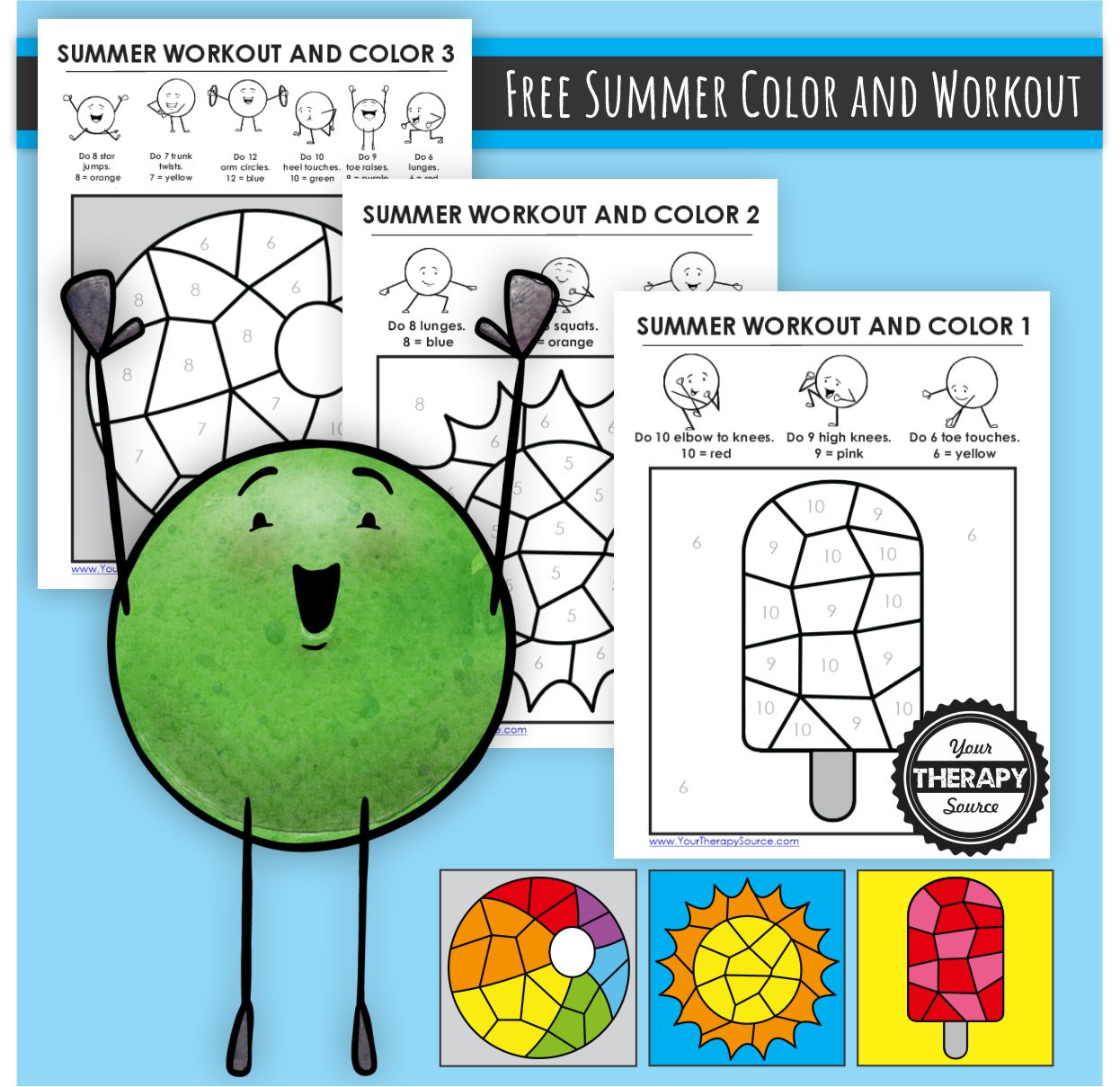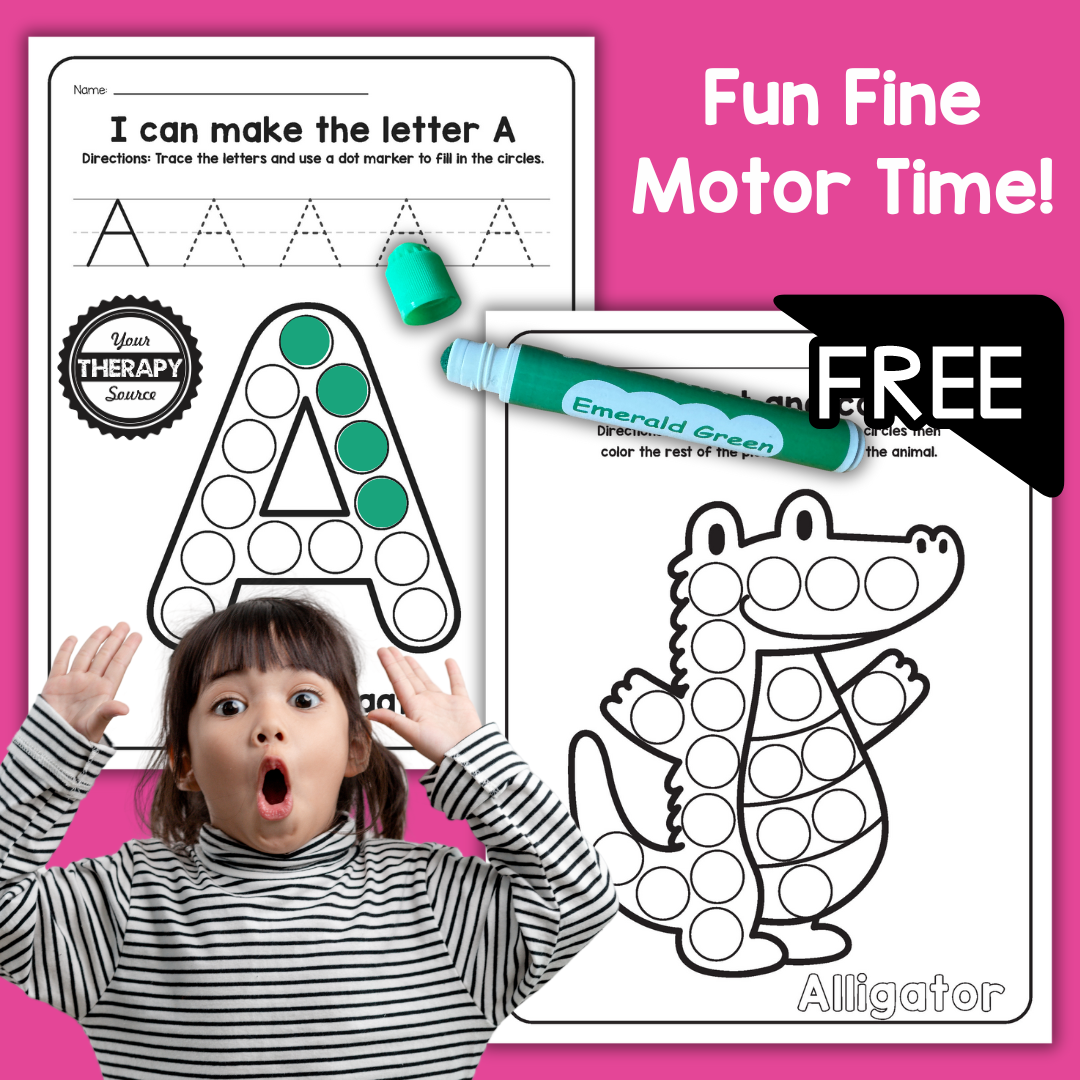Book Scavenger Hunt Free Printable PDF
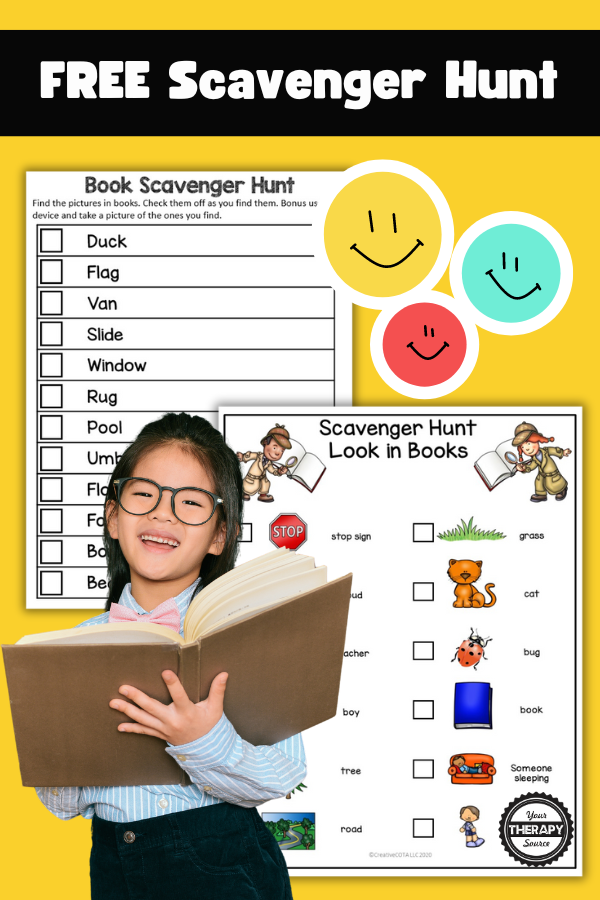
Books are a treasure trove of knowledge and adventure, but getting students to embrace into them can sometimes be a challenge. That’s where book scavenger hunt worksheets come into play. These engaging activities can turn reading into a game, making it a much more appealing activity for students of all ages. By downloading the complete Scavenger Hunts PDF, educators and parents can access a variety of scavenger hunts tailored to different age groups and reading levels. This resource includes a free two-page book scavenger hunt worksheet that features a picture book scavenger hunt and a word hunt. You can download this fun way to interact with books at the bottom of the post.
What is a Book Scavenger Hunt?
A book scavenger hunt is an activity where students look for specific items or information within a book or a selection of books. These hunts can be as simple or complex as needed, making them suitable for students from 1st grade all the way through high school. The free two-page PDF provided in the Scavenger Hunts package includes a picture book scavenger hunt where students look for 12 different pictures with words in various books or the same book, and a second page where they search for 12 different words either as the word itself or depicted in a picture.
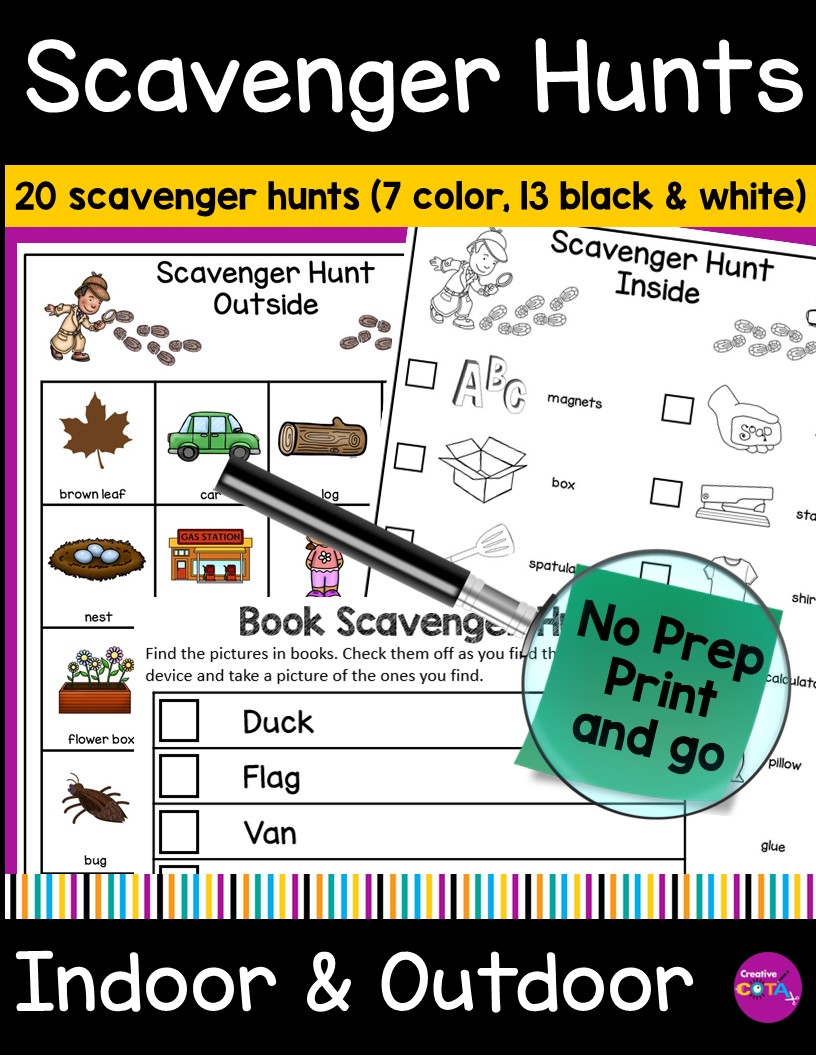
Scavenger Hunts
Benefits of Book Scavenger Hunt Worksheets
- Enhances Close Reading Skills – Book scavenger hunts require students to pay close attention to details, thereby improving their close reading skills. This is especially beneficial for middle school and high school students who are developing more advanced reading comprehension abilities.
- Encourages Independent Work – These worksheets are great for promoting independent work. Students can complete the hunts on their own or in small groups, fostering a sense of autonomy and responsibility.
How to Use Book Scavenger Hunt Worksheets
- Choose the Right Books – Select a variety of books that are appropriate for the age and reading level of your students. This could range from picture books for younger students to more complex texts for older students.
- Set Clear Instructions – Provide clear instructions on what students need to find. The scavenger hunt worksheets will typically include items like book titles, author names, specific page numbers, or particular types of illustrations.
- Incorporate Into Lesson Plans – Book scavenger hunts can be easily integrated into lesson plans. They can be used in English Language Arts to enhance reading comprehension, in social studies to find historical references, or in science classes to locate specific scientific terms.
Example Activities for Different Grades
The free two-page printable at the bottom of this post is a great starting place to get examples to modify book scavenger hunts and create your own!
- 1st Grade ELA – For 1st grade students, a book scavenger hunt could involve finding common names, simple words, or colorful illustrations. This type of activity is included in the free printable. This activity aligns well with 1st-grade ELA standards and can help build foundational reading skills.
- 2nd Grade Fun – Second graders can have so much fun searching for the oldest book in their school library or finding book covers that feature their favorite colors. These activities are both engaging and educational.
- 3rd Grade Engagement – For 3rd grade, a book scavenger hunt might include finding a list of things such as animals, foods, or places mentioned in the book. This helps with categorization skills and enhances their ability to scan texts quickly.
- Physical Education Ideas: Place popular books on one side of the gym and line up the students on the other side. Make a list of different book titles, colors, words or topics for the students to find when they run across the gym.
- Occupational Therapy Session: This activity is perfect for kids to practice visual perceptual and handwriting skills.
- Middle School Exploration – Middle school students can be tasked with finding specific information such as the author’s first name or interesting facts related to the book’s subject matter. This level of detail encourages deeper engagement with the text.
- High School Challenge – High school students can take on more complex hunts, such as finding examples of graphic arts in book illustrations, or locating specific references to historical events in social studies texts. This can also be an excellent preparation for test prep activities.
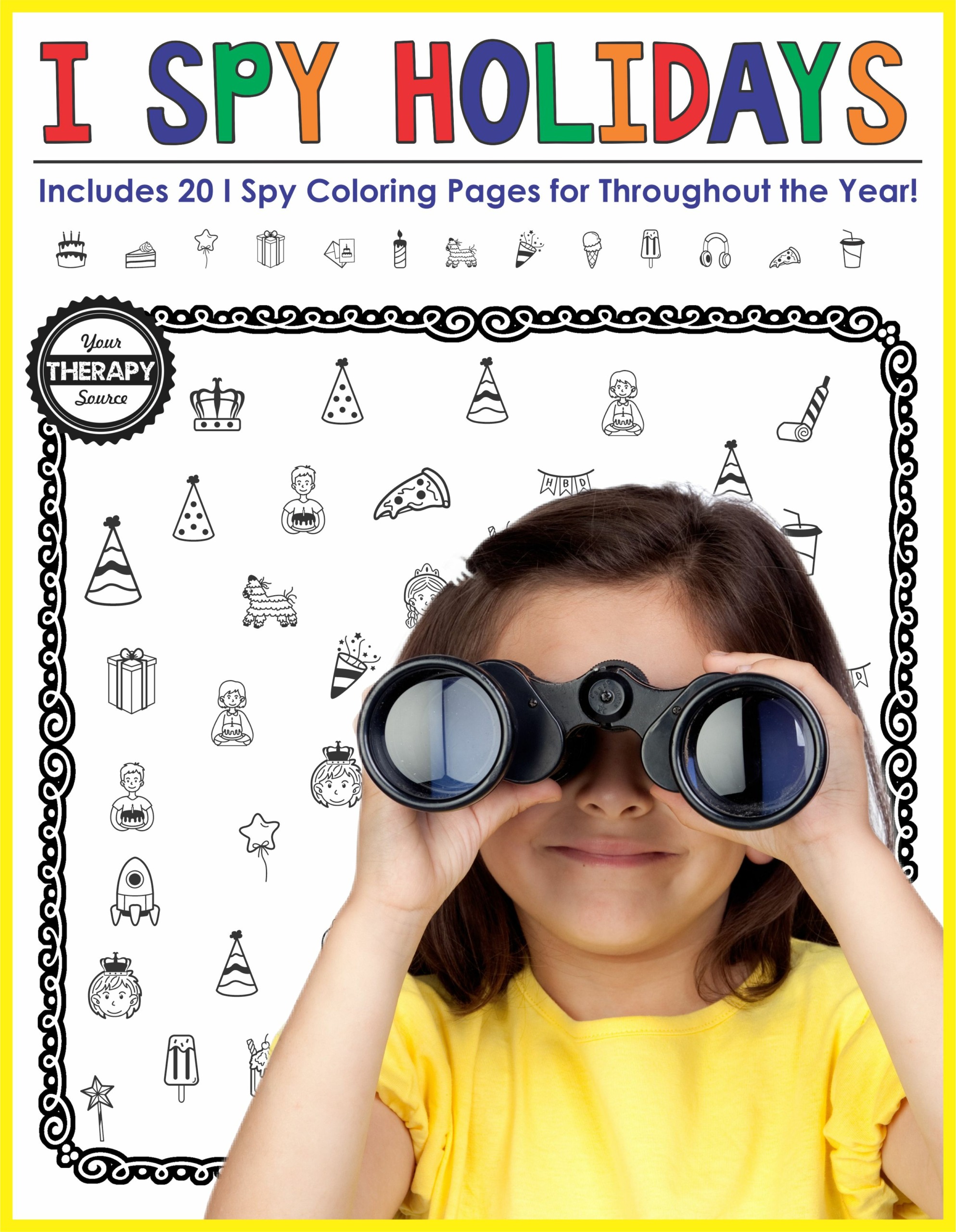
I Spy Coloring Pages – Holiday Edition
Beyond the Classroom: Book Scavenger Hunts in Other Subject Areas
- Visual Arts – In visual arts classes, students can look for specific styles of illustrations or graphic design elements in books. This not only improves their appreciation of art but also connects visual arts with literacy.
- General Science – Science teachers can use scavenger hunts to help students find scientific terms or concepts in their textbooks, reinforcing what they’ve learned in class.
- Social-Emotional Learning – Books are a great resource for teaching social-emotional learning. Scavenger hunts can be designed to find examples of emotions or social interactions within stories, helping students to understand and discuss these important topics.
Download your FREE Book Scavenger Hunt Printable Here
Book scavenger hunts are a fantastic way to make reading more interactive and enjoyable for students. Whether it’s for English Language Arts, social studies, or even science, these activities can be tailored to fit any subject area and grade level. By downloading the complete Scavenger Hunts PDF from Your Therapy Source, you can access a wealth of resources that will help you engage your students in a fun and educational way. So why wait? Start your book scavenger hunt journey today and discover the endless possibilities of making reading a fun and interactive experience for your students.
